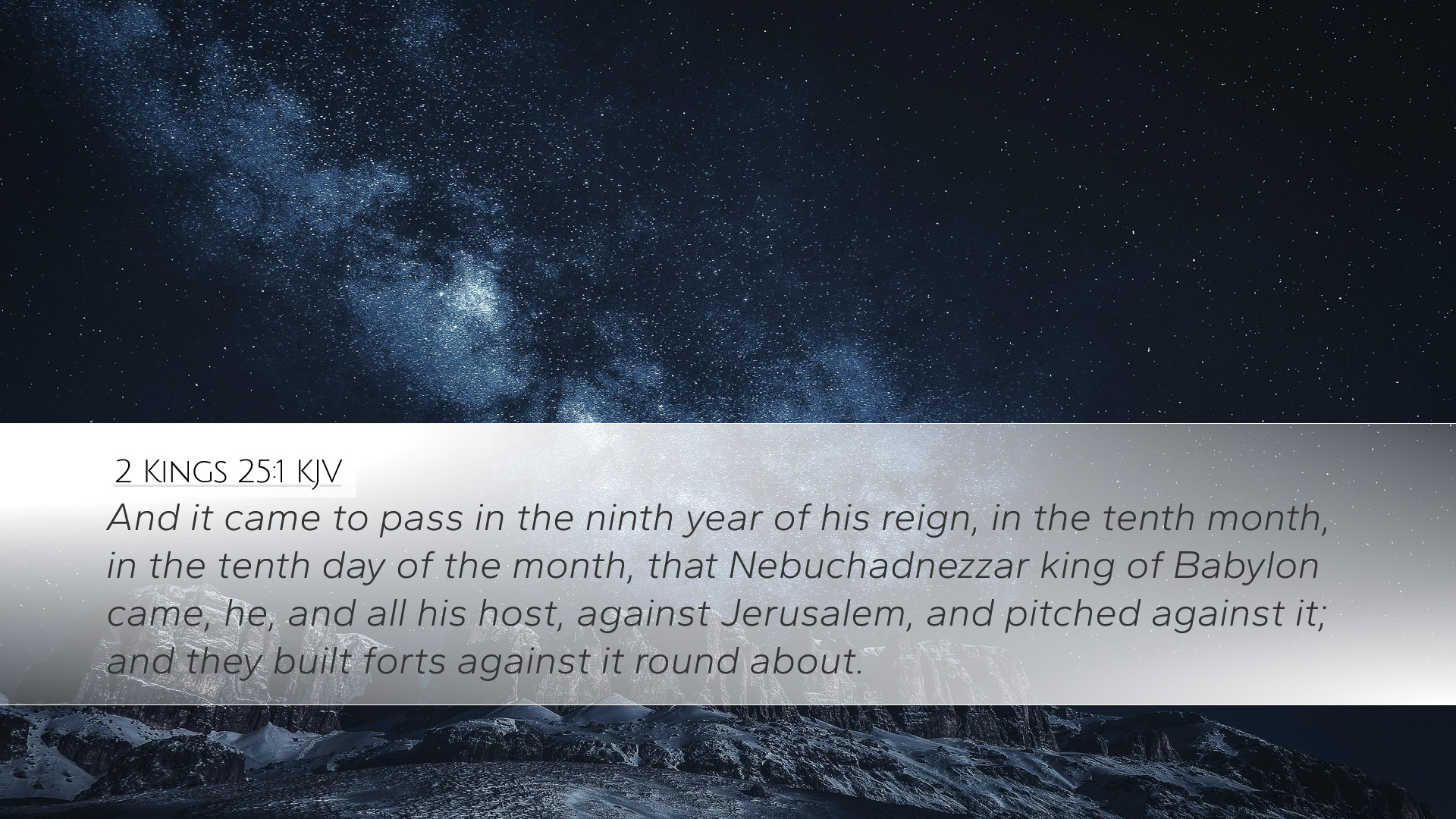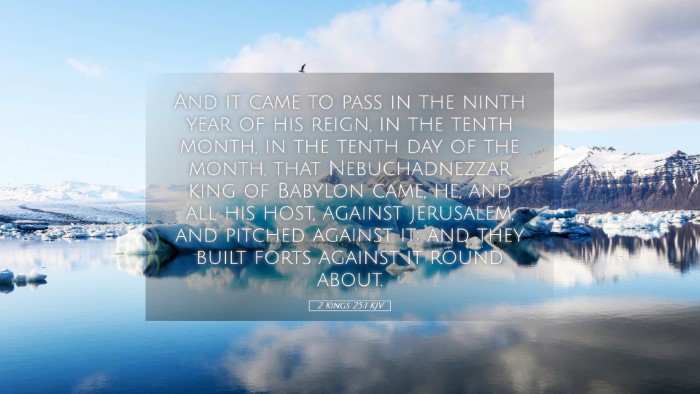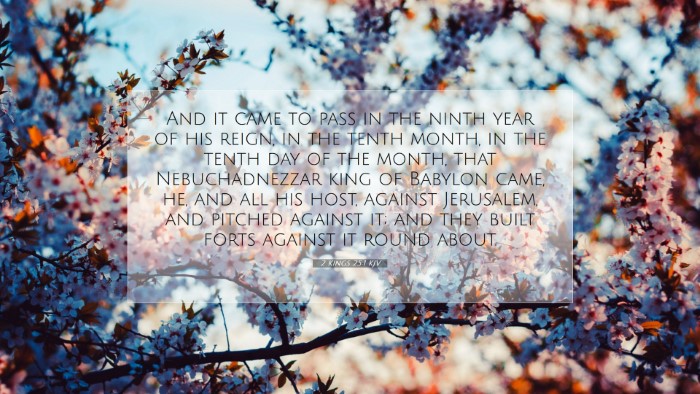Commentary on 2 Kings 25:1
Verse Text: "And it came to pass in the ninth year of his reign, in the tenth month, in the tenth day of the month, that Nebuchadnezzar king of Babylon came, and all his host against Jerusalem, and pitched against it, and built forts against it round about."
Introduction
The verse 2 Kings 25:1 opens a significant chapter in the biblical narrative, marking the culmination of God's judgment on Judah. This commentary synthesizes insights from public domain works, primarily those of Matthew Henry, Albert Barnes, and Adam Clarke, to provide a rich theological understanding for pastors, students, theologians, and Bible scholars.
Historical Context
In this verse, we observe the historical moment when Nebuchadnezzar, the king of Babylon, besieges Jerusalem. This event occurs during the reign of Zedekiah, the last king of Judah. The timing is precise: the ninth year of Zedekiah's reign, the tenth month, and the tenth day, indicating the biblical authors' meticulous attention to chronology.
Significance of Timing
Matthew Henry notes that the specificity of timing serves to remind the reader of the prophetic warnings that had been given to Judah. This besiegement not only represents a military action but also a fulfillment of God's prophetic word through Jeremiah concerning the nation's rebellion (Jeremiah 25:8-11).
The Siege of Jerusalem
As Nebuchadnezzar approaches, the siege represents the convergence of human ambition and divine judgment. Albert Barnes emphasizes that the siege was not merely a military maneuver; it was an act shaped by divine sovereignty. The Lord had allowed Judah to face judgment for its persistent disobedience and idolatry.
Theological Implications
- Divine Judgment: The siege illustrates God’s active judgment on His people, showcasing His holiness and the seriousness of sin.
- The Sovereignty of God: Despite human choices, God’s plan prevails; Babylon’s rise was orchestrated as a divine tool to correct Israel.
- Hope in Despair: While the siege brings doom, it foreshadows the eventual restoration of Israel, highlighting God's redemptive plan.
Military Aspects
The text mentions that Nebuchadnezzar "built forts against it round about," which illustrates the strategic military tactics employed against Jerusalem. Adam Clarke comments on the siege's intensity, reflecting on the psychological impact it had on the inhabitants of Jerusalem. The fortifications served to tighten the noose around the city, leading to inevitable starvation and despair.
Cultural Context of Warfare
Understanding the ancient Near Eastern practices of warfare enhances our interpretation. This method of warfare was common and designed to exhibit power and dominance. Not only does it underscore human conflict, but it also underscores the prophetic declarations that warned Israel of their destiny should they remain unrepentant.
Prophetic Insights
The involvement of the prophet Jeremiah during this time is essential. He continually warned the people of Judah about the consequences of their actions. Henry points out that Jeremiah's prophecies suggested that processes of mourning and lamentation would accompany the fall of Jerusalem, aligning with the broader narrative of lament seen throughout the Scriptures (e.g., Lamentations).
Application for Today
This verse serves as a powerful reminder of the principles of divine judgment and redemption. Pastors and theologians can draw parallels between the historical context of Judah and contemporary society. The lesson warns against the consequences of turning away from God and the necessity of repentance. As seen in this narrative, God's patience eventually leads to judgment, but His mercy is evident in His plans for restoration.
Contemporary Reflections
- God’s Justice: The assuredness of divine justice calls us to live righteously and to heed God’s warnings through His Word.
- Hope Amidst Judgement: Even in calamity, there is hope for redemption, a central theme throughout biblical theology.
- Introspection: This passage invites believers to self-examination and alignment with God’s ways to avoid similar fates.
Conclusion
2 Kings 25:1 stands as a pivotal text in understanding the narrative of Israel's history centered around Jerusalem's fall. It illustrates the intersection of human activity and divine purpose. Through this siege, readers are invited to reflect on God’s justice, mercy, and the necessity of fostering faithfulness within their own lives and communities. The teachings within this passage continue to resonate, making it not only a historical account but a timeless lesson for generations to come.


